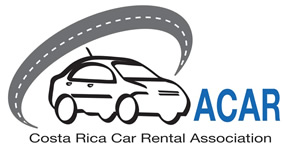What insurance do I need to rent a car?
Car Insurance Made Easy
One of the confusing parts of car rental for many visitors to Costa Rica is the mandatory insurance requirement so let’s clarify that right now.
Third Party Insurance (TPI) is a government imposed requirement for all car rental in Costa Rica, as it is in other countries in the world, including Ireland, New Zealand, Australia, Italy and Slovenia. This insurance may also be referred to as Supplementary Liability Insurance (SLI) or Additional Liability Insurance (ALI).
The insurance price is not set, and can vary depending on the car category rented. The daily fee is usually between $12 and $25, but each car rental agency sets their price.
Credit card coverage doesn’t include the third party insurance requirement and it must be purchased.
Most car rental agencies do not include third party insurance in their advertised prices. Check the daily rate listed for this additional cost and check that it is included in the breakdown of costs received in your quote.
Collision Damage Waiver (CDW) or Loss Damage Waiver (LDW) Is NOT insurance. CDW is frequently a perk offered by credit card providers, and is not a compulsory coverage for car rental, if the renter can provide written proof of this coverage. While most Americans and Canadians are familiar with this perk; credit card providers in other parts of the world are not usually covered and will need to buy CDW in order to rent a vehicle.
This coverage comes with a deductible that is usually about $1,000.
Zero Deductible Collision Damage Waiver is the ticket to complete peace of mind. There is no deductible and so any damage to the vehicle (see exclusions to this below) is not the renter’s financial responsibility.
Windscreen or Tire coverage is offered by a number of car rental agencies as an additional coverage as these items are not covered by the regular CDW, due to damage to the windscreen or tires frequently occurred when the driver doesn’t exercise due caution. This is a minimal daily fee.
Points to be aware of when using credit card coverage for the CDW:
• The deposit on the rental vehicle will be higher if credit card coverage is chosen over in-house coverage. This may depend on the car category being rented but will be around $2,000 to $5,000.
• Renters are responsible for submitting claims should this be necessary. In-house CDW puts the responsibility onto the car rental agency to submit and follow through the claim.
• The car category or vehicle type is covered by the credit card. Vans larger than an eight-seater aren’t covered by major credit cards, but some also decline coverage for full size SUVS. Renters will need to purchase in-house CDW to rent these vehicle categories.
• Car rental duration. Usually the credit card coverage applies for a limited time period; frequently that period is 30 days or less. Renters that require a longer term rental will need to begin a new rental contract in order to continue using the credit card coverage.
And it’s that simple! You must pay for Third Party insurance. You have to provide proof of CDW coverage or purchase this from the car rental agency. Ask the car rental agency for the final price of your rental with all fees, surcharges and taxes included. Do read the small print to be sure that your credit card provider does cover your vehicle, length of rental and you’re prepared to do the legwork if a claim needs making. Now you can relax and enjoy the drive!

Leave a Reply